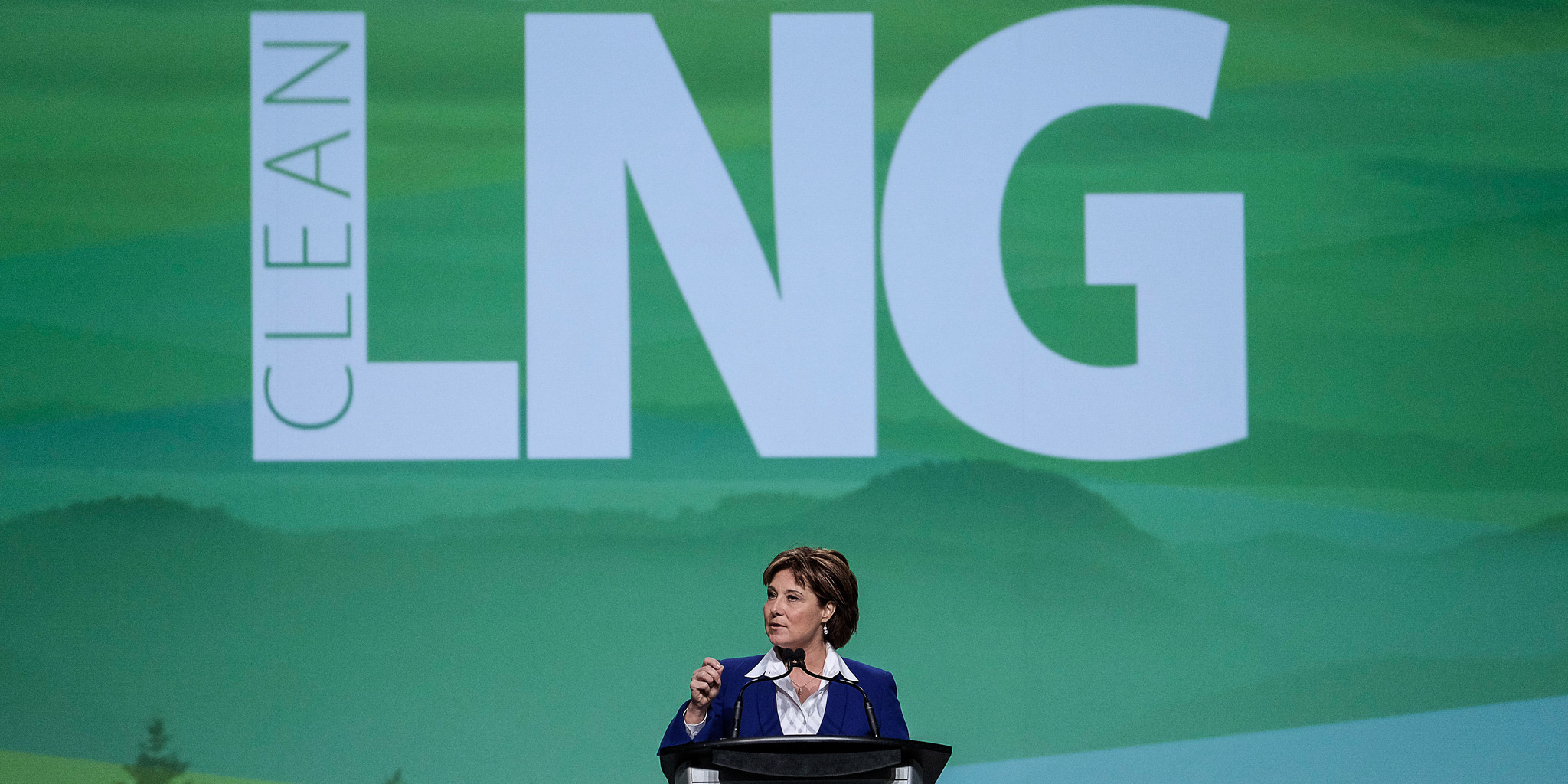We’ve long known extracting oil and gas comes with negative consequences, and rapid expansion of hydraulic fracturing, or fracking, increases the problems and adds new ones — excessive water use and contamination, earthquakes, destruction of habitat and agricultural lands and methane emissions among them.
As fossil fuel reserves become depleted, thanks to our voracious and wasteful habits, extraction becomes more extreme and difficult. Oilsands mining, deepsea drilling and fracking are employed because easily accessible supplies are becoming increasingly scarce. The costs and consequences are even higher than with conventional sources and methods.
Fracking involves drilling deep into the earth, and injecting a high-pressure stream of water, sand and chemicals to break apart shale and release gas or oil. In British Columbia, politicians tout liquefied natural gas as an economic panacea, a product we can export around the world to create jobs and prosperity at home. More than 80 per cent of B.C.’s natural gas is fracked, and as fracking increases, the percentage rises.
Of the many problems with the industry, methane emissions from fracked and conventional operations are among the most serious. Methane is at least 84 times more potent than carbon dioxide as a heat-trapping gas over the short term. Researchers estimate it’s responsible for 25 per cent of already observed climatic changes. One difference between methane and carbon dioxide: Methane remains in the atmosphere for a shorter time — around a decade, compared to many decades or centuries for carbon dioxide.
Methane’s relatively short lifespan means reducing the amount entering the atmosphere will have major and rapid results. Cutting methane emissions from the oil and gas sector is one of the cheapest, most effective ways to address climate change. The technology to do so already exists. It’s absurd that the industry is leaking the very resource it wants to sell.
Methane comes from a number of sources, including animal agriculture and natural emissions. Global warming itself means methane once trapped in frozen ground or ice is escaping into the air.
The oil and gas industry is one of the major emitters. A field study by the David Suzuki Foundation and St. Francis Xavier University found methane pollution from B.C.’s oil and gas industry is at least 2.5 times higher than B.C. government estimates.
In 2015 and 2016, Foundation researchers joined St. Francis Xavier University’s Flux Lab under the supervision of David Risk, an expert in measurement, detection and repair of fugitive emissions. Using gas-detection instruments mounted on a “sniffer truck,” they travelled more than 8,000 kilometres in northeastern B.C. They found methane emissions from B.C.’s Montney region alone are greater than what the provincial government has estimated for the entire industry! (Montney represents about 55 per cent of B.C.’s oil and gas production.) David Suzuki Foundation senior scientist John Werring followed up on and corroborated that research by measuring point-source methane emissions from more than 170 oil and gas sites.
The research, available in the journal Atmospheric Chemistry and Physics, found Montney operations leak and intentionally release more than 111,800 tonnes of methane into the air annually — equivalent to burning more than 4.5 million tonnes of coal or putting more than two million cars on the road. Half of all well and processing sites in the region are releasing methane.
This research shows that the oil and gas sector is the largest source of climate pollution in B.C., surpassing commercial transportation — and it contradicts claims that natural gas or LNG is a clean fuel or that it’s useful to help us transition from other fossil fuels.
Given these results and other studies — including one in Alberta that found the amount of methane leaking from Alberta operations in one year could heat 200,000 homes — it’s time for all levels of government to get industrial methane emissions under control.
Beyond existing commitments to reduce methane emissions by 45 per cent, governments must work to eliminate them from this sector by 2030, with strong regulations, monitoring and oversight. We need better leak detection and repair, improved reporting and enforcement, and methods to capture emissions rather than burning them.
Climate change is a serious issue, and methane emissions are a significant contributor. Getting them under control is a quick, cost-effective way to help address the problem. What’s stopping us?
Written with contributions from David Suzuki Foundation Senior Editor Ian Hanington. David Suzuki’s latest book is Just Cool It!: The Climate Crisis and What We Can Do (Greystone Books), co-written with Ian Hanington.
Learn more at www.davidsuzuki.org.
Image: Flickr/Province of British Columbia
Chip in to keep stories like these coming.




